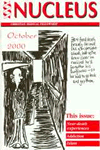The technique could potentially be used to generate tissue to replace that destroyed by degenerative diseases such as Alzheimer’s and Parkinson’s. Ultimately, it may be possible to produce new skin grafts for burns victims and replacement organs for transplant patients.
MPs and peers are to be given a free vote later in the year when the new proposals come up for approval. However, the recommendations only cover research to develop potential treatments and so they would have to be reassessed if and when these new treatments come to be used.
The proposals have been heralded by groups representing doctors, patients and scientists as being a move towards ‘a new kind of medicine’. David Latchman, vice-chairman of the Parkinson’s Disease Society’s medical advisory panel, said that therapeutic cloning offered a ‘tremendous opportunity’. Sir Charles George, medical director of the British Heart Foundation also said that, providing the appropriate safeguards were in place, ‘the ethical argument is outweighed by the many achievable benefits to living patients’. [2]
The Prime Minister, Tony Blair is also expected to back the proposals on the grounds that the benefits to scientific research outweigh the ethical issues. However, Opposition leader William Hague, along with several Labour ministers is likely to lead a ‘moral minority’ against the legislation when it comes before the Commons.
The new legislation has angered pro-life and church groups. A spokesperson for the charity Life, said: ‘Therapeutic cloning means killing. It is a further trivialisation of human life’ and ‘exploits human beings at the most vulnerable stage of their lives’. Writing in the Sunday Telegraph, Cardinal Thomas Winning, head of the Roman Catholic Church in Scotland and chairman of the bio-ethics committee of the Roman Catholic Bishops’ Conferences of Britain and Ireland said that he felt the public was being ‘duped’ into believing that cloning was the only way to defeat diseases such as Parkinson’s and the Government was taking ‘a dangerous and slippery path’. [3]
The potential benefits to society of therapeutic cloning cannot be ignored, but can we as Christians sanction a procedure which inevitably leads to the destruction of a human embryo and therefore a human life? Contrary to popular belief, there are alternatives to using embryonic cells and current research suggests that adult stem cells harvested from bone marrow, or even cells taken from the placenta or umbilical cord following a live birth, can be transformed into other cell types. According to an article in the British Medical Journal, the use of embryonic stem cells ‘may soon be eclipsed by the more readily available and less controversial adult stem cells’. [4] This would also have the added advantage of circumventing the problem of immune rejection, if an individual’s own cells could be used.
With regard to therapeutic cloning, the end cannot be used to justify the means. All human life is sacred from the time of conception as we are all created in God’s image. [5] Each one of us has a fundamental right to life, the most important right of all. We are also called to speak out for the voiceless [6] and therefore our obligation is not to harm the embryo/fetus but to nurture and protect it. Even before day 14, the embryo is not just a ball of cells but a human being. Individuals should not be created solely for their body parts and should not be the subject of experiments without their personal knowledge and permission.
































